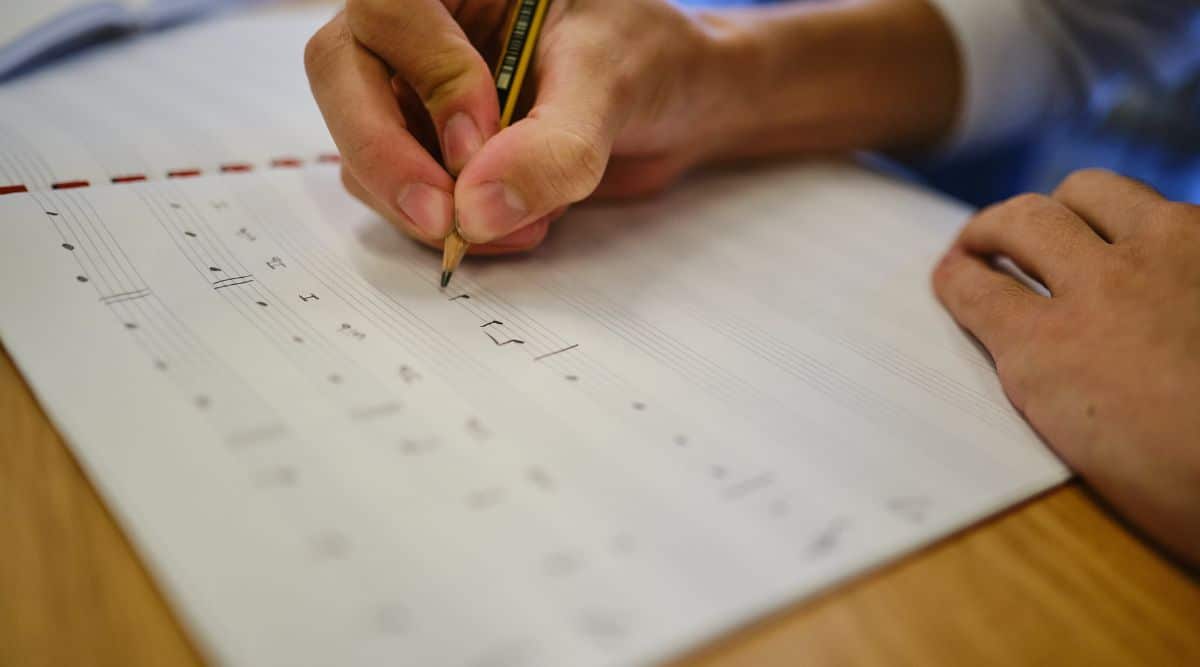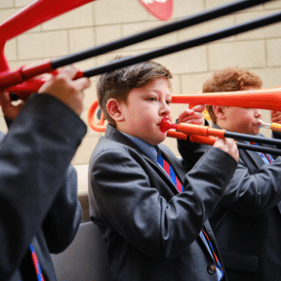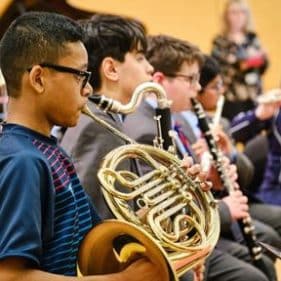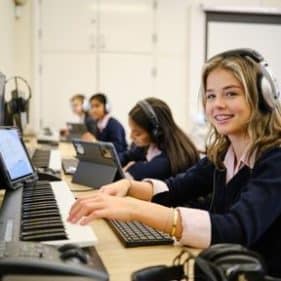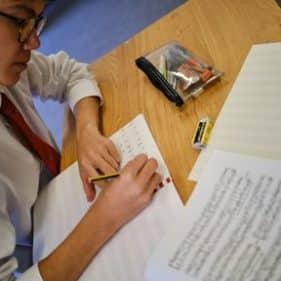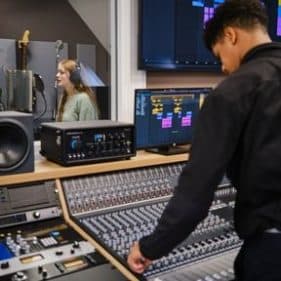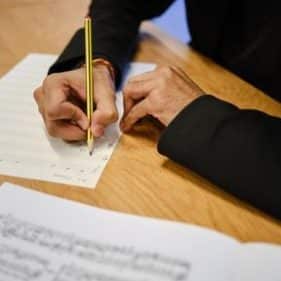Benefits of studying music
Music affects us all. Academic music looks at the ways that this works, how composers make us ‘feel’, and how we can pass this onto others in turn. Throughout your time at Loughborough Schools Music we teach you how to study music across three broad areas: listening, composing and performing.
We’ll teach you how to create your own musical ideas across a range of styles, through singing, working with others, and working individually using aspects of Music Technology. We will also encourage you to perform music live and everyone receives a basic introduction to using a piano keyboard and performing through technology.
GCSE and A Level
At GCSE your understanding of musical styles is deepened, as you study everything from Beethoven to Beyonce, music for royal occasions to reggae, and the piano music of Schubert to S Club 7! Alongside a listening exam, the GCSE course culminates in a portfolio of two pieces of music that you have written, and two pieces of music that you’ll perform on your instrument, voice or through Technology.
When you move into Sixth Form you have the option of studying 2 different A Levels: Music and Music Technology. Both A Levels are incredibly diverse courses encompassing a variety of practical and academic approaches to the study of music. Taught in mixed classes across all three senior schools in our state-of-the-art, award-winning facilities, the additional support from our highly experienced and expert staff for any musician at the Loughborough Schools Foundation is unrivalled.
Excellence
Our pupils aspire to the very best. We have fantastic results with all our academic qualifications. Each year over 80% of our pupils achieve a Grade 9 – 7 at GCSE, and in 2022 58% of our pupils achieved a 9 compared to 9.4% nationally*.
100% of our students achieve an A*-B at A Level Music and 85% an A*-B at A Level Music Technology. In recent years, Year 13 students have left Loughborough Schools Music to study at universities including Oxford, Cambridge, Durham, Imperial and Birmingham. Some of them have chosen to continue their study of Music, others have pursued other academic interests such as Engineering, Geography and English. Students have gone on to study at music colleges including the Royal College of Music, the Royal Northern College of Music, the Royal Academy of Music and Trinity Laban. Students have also left here to study on highly respected sound engineering and Music Technology courses, including the prestigious Tonmeister course at the University of Surrey.
*of all entries for AQA GCSE Music.

